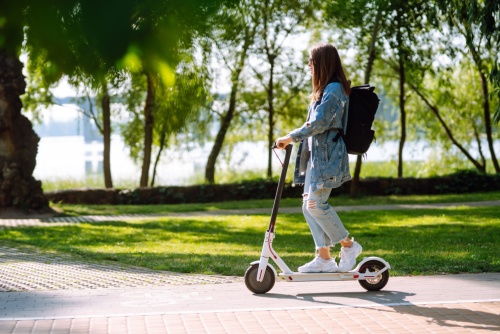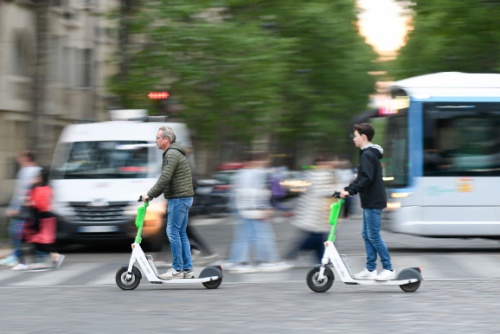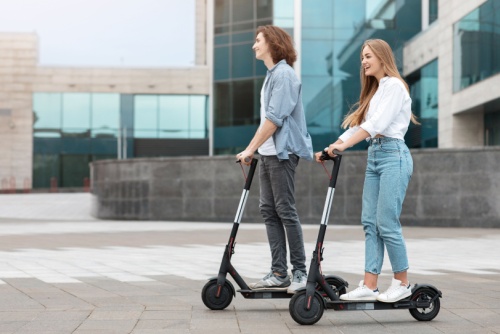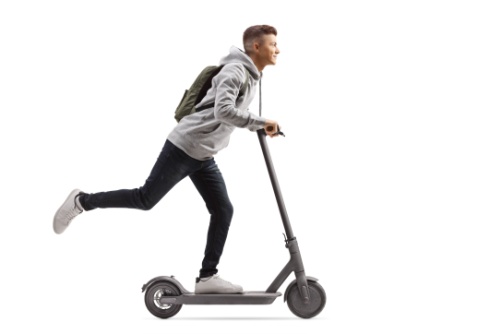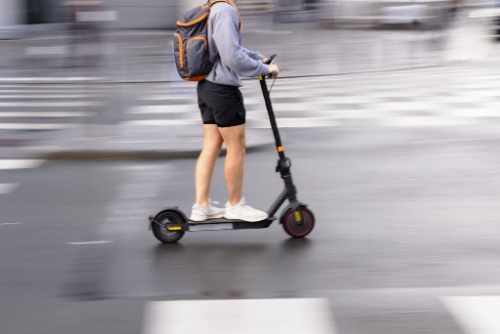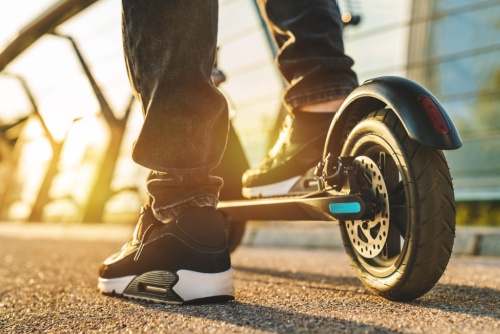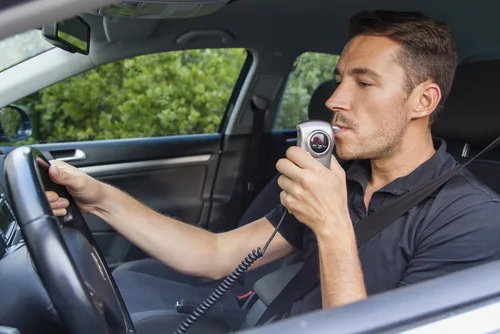Electric scooters, also known as e scooters, have rapidly become a popular mode of transportation, offering a convenient and eco-friendly alternative for short trips and urban commuting. In some jurisdictions, electric scooters are classified as motorized scooters, which affects their legal status and the regulations governing their use. However, as their use has grown, so has the need to understand the legal implications of riding them under the influence of alcohol or drugs, including the risks and consequences of drunk driving. While driving under the influence (DUI) laws are typically associated with cars, trucks, and motorcycles, a new question arises: Can you get a DUI on an electric scooter?
In this blog, we’ll explore the nuances of DUI laws as they apply to electric scooters. We’ll delve into how these laws vary across different regions, what constitutes impairment on an electric scooter, and the potential legal consequences of riding one while intoxicated. Whether you’re a scooter enthusiast or simply curious about the intersection of new transportation trends and existing laws, understanding these regulations is crucial for ensuring safe and lawful scooter use. Join us as we navigate the complexities of DUI charges related to electric scooters and uncover what you need to know to stay compliant and responsible.
Understanding DUI Laws
Driving Under the Influence (DUI) laws are designed to prevent individuals from operating vehicles while impaired by alcohol or drugs, thereby ensuring public safety on the roads. Traditionally, these laws have been associated with motor vehicles such as cars, trucks, and motorcycles. However, with the rise of alternative transportation options like electric scooters, it’s important to understand how DUI regulations may apply to these new modes of transport.
1. What Constitutes DUI?
- DUI is typically defined as operating a vehicle with a blood alcohol concentration (BAC) above a legal limit, usually 0.08% in many jurisdictions. It can also include impairment due to drugs, whether prescription, over-the-counter, or illegal substances.
- The primary objective of DUI laws is to prevent unsafe driving practices that arise from impaired judgment and coordination.
2. Traditional DUI Laws and Vehicle Classification
- DUI laws generally cover vehicles that are designed for road use and require a driver’s license. These include automobiles, trucks, motorcycles, and other motorized vehicles. Driver’s license suspension is a potential consequence for violating these laws. For individuals who have lost their driver’s license due to a DUI conviction, this can significantly impact their ability to use alternative transportation like electric scooters.
- The laws also include penalties for impairment while operating these vehicles, such as fines, license suspensions, and even imprisonment. Driver’s license suspension is a significant penalty for DUI offenses, reflecting the serious nature of these violations.
3. Extending DUI Laws to New Transportation Modes
- As new modes of transportation, such as electric scooters, have emerged, questions have arisen about how DUI law applies to them. Electric scooters, while motorized, differ from traditional vehicles in terms of speed, size, and road usage.
- The legal classification of electric scooters varies by jurisdiction, affecting whether or not DUI laws apply.
4. Legal Definitions and Classifications
- Understanding how electric scooters are legally defined in different regions is key to determining if DUI laws are applicable. Some places classify them as motor vehicles, while others treat them as bicycles or pedestrian devices.
- The classification impacts whether the same DUI standards apply and how enforcement is approached.
By grasping the fundamentals of DUI laws and how they relate to various transportation modes, including electric scooters, you can better understand the legal landscape surrounding impaired riding. This foundational knowledge is crucial for navigating the complexities of DUI regulations and ensuring safe, legal use of all forms of transportation.
Electric Scooters: Legal Classification
Electric scooters have revolutionized urban transportation, offering a quick and eco-friendly way to navigate city streets. Electric scooters often fall into a gray area between motorized vehicles and non-motorized devices, and are sometimes referred to as motorized scooters. In some jurisdictions, electric scooters are classified as motorized scooters, which affects their legal requirements such as licensing and insurance. However, their legal classification can vary significantly depending on the jurisdiction, impacting how laws such as DUI regulations apply to their use. Understanding the legal status of electric scooters is essential for determining whether riding one under the influence can lead to a DUI charge.
1. General Classification of Electric Scooters
- Motorized Vehicles vs. Non-Motorized Devices: Electric scooters often fall into a gray area between motorized vehicles and non-motorized devices. While they are powered by electric motors, their classification can differ from traditional motor vehicles like cars and motorcycles.
- Bicycles or Motorized Bicycles: In some jurisdictions, electric scooters are classified similarly to bicycles, meaning they are subject to different rules and regulations than motor vehicles. This classification affects whether DUI laws apply.
2. Regional Variations
- Local and State Laws: The legal classification of electric scooters varies from one region to another. Some states or countries treat them as motorized vehicles, requiring compliance with vehicle laws, while others classify them as personal transport devices or even as bicycles. Electric scooters are often powered by an electric motor, which can influence their classification.
- Impact on DUI Regulations: Depending on their classification, the applicability of DUI laws can change. For example, if electric scooters are classified as motor vehicles, riding under the influence might be subject to DUI laws similar to those for cars.
3. Definitions and Requirements
- Speed and Power Limits: Many regions have specific speed and power limits that determine whether an electric scooter is considered a motor vehicle. Scooters that exceed these limits may be classified differently and face more stringent regulations. The maximum speed allowed is often 20 mph, emphasizing both legal implications and safety considerations when riding on public roads.
- Licensing and Insurance: The requirement for a driver’s license or insurance can also influence the legal classification. Regions where scooters are classified as motor vehicles often impose licensing and insurance requirements.
4. Recent Legal Developments
- Legislative Changes: As electric scooters become more prevalent, some jurisdictions are updating their laws to better address their use. These changes may impact how electric scooters are classified and how DUI laws are enforced.
- Case Law and Precedents: Recent legal cases can provide insights into how electric scooters are treated under the law and influence future regulations.
5. Practical Implications for Riders
- Compliance with Local Laws: Understanding the legal classification of electric scooters in your area helps ensure compliance with local regulations. This knowledge is crucial for avoiding legal issues and ensuring safe scooter use.
- Responsibility and Awareness: Riders should be aware of how their electric scooter is classified and the applicable laws to avoid potential legal repercussions, including DUI charges.
By clarifying the legal classification of electric scooters, you can better understand how DUI laws might apply and take appropriate steps to comply with local regulations. This knowledge not only helps in legal compliance but also promotes safe and responsible scooter usage.
DUI Regulations for Electric Scooters
As electric scooters continue to gain popularity as a convenient mode of transportation, understanding how DUI (Driving Under the Influence) regulations apply to them is crucial. Although traditional DUI laws primarily target motor vehicles such as cars and motorcycles, the rise of electric scooters has prompted questions about whether similar regulations extend to these new devices. Here’s an overview of how DUI regulations might apply to electric scooters:
1. Overview of DUI Regulations
- Purpose and Scope: DUI laws are designed to prevent individuals from operating vehicles while impaired by alcohol or drugs. These laws aim to reduce accidents and ensure road safety.
- Traditional Vehicle Context: DUI regulations typically apply to cars, trucks, motorcycles, and other motorized vehicles where impairment can significantly impact driving ability.
2. Applicability to Electric Scooters
- Legal Classification: The applicability of DUI laws to electric scooters often depends on how these scooters are classified in different jurisdictions. If electric scooters are classified as motor vehicles, DUI laws are more likely to apply. Speed limit regulations for electric scooters, commonly ranging from 10-15 mph and sometimes up to 20 mph, also play a role. Exceeding these limits can impact DUI enforcement.
- Impairment Standards: In jurisdictions where electric scooters are considered motorized vehicles, the same standards for impairment apply, making DUI riding a serious offense. This means that operating an electric scooter with a blood alcohol concentration (BAC) above the legal limit or under the influence of drugs could result in a DUI charge, just as with riding an e scooter.
3. Regional Variations in DUI Enforcement
- State and Local Differences: DUI regulations for electric scooters can vary widely. Some areas may explicitly include electric scooters in their DUI laws, while others may not. Understanding local regulations is crucial for electric scooter riders.
- Case Examples: Look into recent cases or legal precedents where individuals were charged with DUI while riding electric scooters. These cases can provide insights into how laws are applied in practice.
4. Evidence and Enforcement
- Proof of Impairment: Just as with traditional DUI cases, law enforcement may use breathalyzer tests, field sobriety tests, and other methods to assess impairment on an electric scooter.
- Challenges in Enforcement: Enforcing DUI regulations for electric scooters may present challenges, such as determining the appropriate level of impairment and ensuring consistent application of the law.
5. Consequences of a DUI on an Electric Scooter
- Penalties and Fines: The legal consequences of a DUI on an electric scooter can include fines, license suspensions, and other penalties. These may differ from those associated with traditional vehicles.
- Impact on Driving Record: A DUI charge, even on an electric scooter, can affect your driving record and insurance rates. Understanding these consequences can help in managing the impact of a DUI charge.
6. Preventive Measures and Best Practices
- Safe Riding Practices: Regardless of the legal classification, it is essential to practice safe riding habits. Avoiding impairment while using electric scooters ensures safety and compliance with the law.
- Staying Informed: Keep up-to-date with local regulations and legal developments related to electric scooters and DUI laws to avoid potential legal issues.
7. Looking Ahead
- Evolving Laws: As electric scooters become more common, regulations may continue to evolve. Stay informed about changes in the law and how they may affect electric scooter use and DUI enforcement.
By understanding DUI regulations specific to electric scooters, you can navigate the legal landscape more effectively and ensure that you are riding responsibly. Whether or not electric scooters are explicitly covered under DUI laws, practicing safe and sober riding is always the best approach to avoid legal and safety issues.
Factors Affecting DUI Charges on Electric Scooters
Determining whether you can receive a DUI (Driving Under the Influence) charge while operating an electric scooter involves understanding several key factors that influence how these charges are assessed. These factors can vary based on local laws, the specifics of the incident, and the nature of the impairment. Here’s a detailed look at the elements that can affect DUI charges on electric scooters:
1. Legal Classification of Electric Scooters
- Vehicle Classification: The classification of electric scooters in your jurisdiction plays a crucial role. If scooters are classified as motor vehicles, DUI laws are more likely to apply. Conversely, if they are categorized as bicycles or personal transport devices, the regulations may differ.
- Local Regulations: Variations in how different states, cities, or countries classify electric scooters can impact the enforcement of DUI laws. Always check local regulations to understand the applicable rules.
2. Level of Impairment
- BAC Limits: DUI laws typically involve blood alcohol concentration (BAC) limits, commonly set at 0.08% for motor vehicles. If electric scooters fall under the same legal category as motor vehicles, similar BAC limits may apply.
- Drug Impairment: DUI laws also cover impairment from drugs, whether prescription, over-the-counter, or illegal substances. Evidence of drug impairment can lead to DUI charges, regardless of the type of vehicle.
3. Evidence and Enforcement
- Proof of Impairment: Law enforcement may use various methods to assess impairment, including breathalyzer tests, field sobriety tests, and observational assessments. The effectiveness of these methods on electric scooter riders can impact the outcome of a DUI charge.
- Enforcement Practices: The enforcement of DUI laws on electric scooters can vary. Some jurisdictions may have specific protocols for scooters, while others may apply general vehicle DUI procedures.
4. Circumstances of the Incident
- Behavior and Observations: The behavior of the scooter rider, such as erratic driving or difficulty maintaining balance, can influence whether law enforcement decides to pursue DUI charges. Adhering to the speed limit is crucial for avoiding DUI charges, as it demonstrates responsible riding behavior. Observations by officers can play a significant role in the assessment of impairment. Many regions have specific speed limits for electric scooters, which can influence their classification and the enforcement of DUI laws.
- Accidents and Infractions: If an accident or traffic infraction is involved, the circumstances can impact the likelihood of DUI charges. An accident may lead to a more thorough investigation and increase the chances of DUI enforcement.
5. Serious Legal Consequences
- State and Local Laws: DUI regulations for electric scooters can differ from one jurisdiction to another. Some regions may have explicit laws addressing electric scooters and impairment, while others may not. Understanding these differences is key to assessing the risk of DUI charges.
- Legal Precedents: Recent legal cases and precedents can influence how DUI charges are applied to electric scooters. Keeping abreast of legal developments can provide insight into enforcement trends.
6. Impact of Prior Offenses
- Previous DUI Convictions: A history of DUI offenses may affect the handling of a new charge. Repeat offenders may face harsher penalties and stricter enforcement, even if the charge involves an electric scooter.
7. Defense and Legal Assistance
- Legal Representation: The presence of legal representation can significantly impact the outcome of a DUI charge. An attorney specializing in DUI cases can help navigate the legal complexities, especially when it involves newer transportation modes like electric scooters.
Understanding these factors helps in assessing the risk of DUI charges while operating an electric scooter and informs best practices for legal compliance and safe riding. By being aware of the variables that affect DUI enforcement, you can better prepare for potential legal issues and ensure responsible use of electric scooters.
Legal Consequences and Penalties
Facing a DUI (Driving Under the Influence) charge while riding an electric scooter can result in a range of legal consequences and penalties, similar to those imposed for traditional motor vehicles. It is essential to contact a law firm for expert legal guidance to navigate these potential repercussions and manage the impact of such charges. Here’s an overview of what you might expect:
1. Fines and Financial Penalties
- Monetary Fines: DUI convictions typically result in financial penalties, which can vary depending on the jurisdiction and the severity of the offense. Fines for electric scooter DUI charges might be comparable to those for motor vehicles or could differ based on local laws.
- Court Costs and Fees: In addition to fines, you may incur court costs and administrative fees related to your DUI case. These costs can add up and contribute to the overall financial burden of a DUI charge.
2. License Suspension and Restrictions
- Driver’s License Suspension: In many regions, a DUI conviction can lead to a suspension of your driver’s license. The duration of the suspension may vary, and in some cases, it may affect your ability to operate other vehicles, including scooters. This can be particularly impactful for individuals who rely on electric scooters for their daily transportation needs.
- Scooter-Specific Restrictions: If electric scooters are classified differently in your jurisdiction, the suspension might specifically apply to scooter use or motorized vehicles in general.
3. Criminal Record and Background Impact
- Criminal Record: A DUI conviction results in a permanent criminal record, which can have long-term implications for employment, travel, and other aspects of your life. The impact of having a DUI on an electric scooter may be similar to that of traditional DUI convictions.
- Background Checks: Having a DUI on your record can affect background checks for employment, housing, and other opportunities. This could have significant implications for your future prospects.
4. Probation and Community Service
- Probation Terms: Some DUI convictions may result in probation, during which you must comply with specific conditions set by the court. This may include regular check-ins, drug testing, or attending DUI education programs.
- Community Service: Courts may impose community service requirements as part of a DUI sentence. This involves performing a certain number of hours of unpaid work for the community.
5. Jail Time and Incarceration
- Possible Jail Time: In more severe cases, a DUI conviction can result in jail time. The length of incarceration can vary depending on factors such as prior offenses, the level of impairment, and local laws.
- Impact on Daily Life: Serving jail time can significantly impact your personal and professional life, leading to disruptions in employment, family obligations, and overall well-being.
6. Insurance Consequences
- Increased Insurance Rates: A DUI conviction typically leads to higher insurance premiums. Insurance companies may view you as a higher risk, resulting in increased costs for coverage.
- Possible Policy Cancellation: In some cases, insurers may choose to cancel your policy or refuse to renew it, leaving you to find new coverage under potentially more challenging conditions.
7. Impact on Future Legal Issues
- Repeat Offenses: A DUI conviction can have implications for future legal issues, including harsher penalties for repeat offenses. A history of DUI charges may lead to more severe consequences for subsequent incidents.
- Legal and Financial Implications: The ongoing impact of a DUI conviction can affect various aspects of your life, including legal battles, financial stability, and personal relationships.
8. Legal Assistance and Representation
- Hiring an Attorney: Consulting with a qualified attorney can help you navigate the legal process and work towards minimizing the consequences of a DUI charge. An experienced lawyer can provide guidance, negotiate penalties, and represent your interests in court.
Understanding the potential legal consequences and penalties associated with a DUI on an electric scooter is crucial for managing the impact of such charges. By being informed about the possible outcomes, you can take steps to address the situation and seek appropriate legal support.
Safety Considerations
When it comes to riding electric scooters, safety is paramount—not only to avoid accidents but also to ensure compliance with laws and regulations, including those related to DUI (Driving Under the Influence). Understanding and implementing safety measures can help prevent legal issues and promote a safer riding experience. Here are key safety considerations for electric scooter riders:
1. Avoiding Impairment
- Sobriety While Riding: The safest approach is to avoid riding an electric scooter under the influence of alcohol or drugs. Impairment can significantly affect your judgment, coordination, and reaction times, increasing the risk of accidents and potential legal consequences.
- Legal Risks: Even if local DUI laws specifically targeting electric scooters are not well-defined, riding impaired can still lead to dangerous situations and legal trouble, such as being charged with public intoxication or reckless driving.
2. Understanding Local Regulations
- Research Local Laws: Different jurisdictions have varying regulations regarding electric scooters and their use. Research and understand the specific laws in your area, including any that pertain to DUI and impaired riding.
- Compliance: Adhering to local laws not only helps you avoid legal issues but also contributes to a safer riding environment for everyone.
3. Proper Use of Safety Gear
- Wear Helmets: Always wear a helmet while riding an electric scooter. Helmets significantly reduce the risk of head injuries in the event of an accident.
- Visibility: Use reflective clothing or accessories and ensure your scooter has working lights to increase your visibility, especially during low-light conditions or at night.
4. Safe Riding Practices
- Obey Traffic Rules: Follow all traffic laws and regulations, including speed limits, stop signs, and right-of-way rules. This helps prevent accidents and promotes safe interactions with other road users.
- Avoid Distractions: Stay focused on the road and avoid distractions such as using your phone or engaging in other activities while riding. Distractions can lead to impaired reaction times and increased risk of accidents.
5. Maintaining Your Scooter
- Regular Inspections: Perform regular checks on your electric scooter to ensure it is in good working condition. Inspect the brakes, tires, lights, and battery to avoid mechanical failures that could lead to accidents.
- Proper Maintenance: Follow the manufacturer’s recommendations for maintenance and repairs. Keeping your scooter well-maintained enhances safety and reliability.
6. Understanding Impairment Effects
- Impact of Alcohol and Drugs: Recognize how alcohol and drugs affect your ability to operate a scooter safely. Impairment can diminish motor skills, affect coordination, and slow reaction times.
- Education: Educate yourself about the effects of different substances on your ability to ride safely. Awareness of these effects can help you make informed decisions about when and how to ride.
7. Emergency Preparedness
- Know Emergency Procedures: Familiarize yourself with emergency procedures in case of an accident or malfunction. Knowing how to handle emergencies can help you respond effectively and reduce potential harm.
- First Aid Knowledge: Basic first aid knowledge can be valuable in treating minor injuries and providing assistance if you or someone else is injured in an accident.
8. Promoting Responsible Riding
- Set a Good Example: As an electric scooter rider, you can set a positive example by practicing responsible and safe riding habits. This contributes to a culture of safety and encourages others to follow suit.
- Advocate for Safety: Support and advocate for safety measures and regulations that promote safe electric scooter use within your community.
By prioritizing safety considerations and understanding the impact of impairment on electric scooter riding, you can enhance your own safety and avoid potential legal issues. Responsible riding practices, combined with adherence to local regulations, contribute to a safer and more enjoyable experience on electric scooters.
Recent Changes and Future Trends
As electric scooters become more popular, the landscape of regulations and enforcement concerning DUI (Driving Under the Influence) charges continues to evolve. Understanding recent changes and anticipating future trends is crucial for navigating the legal and safety aspects of riding electric scooters. Here’s an overview of recent developments and what to expect in the future:
1. Recent Changes in Regulations
- Updated DUI Laws: Some jurisdictions have recently updated their DUI laws to explicitly include electric scooters. These changes ensure that impaired riding on scooters is treated with the same seriousness as DUI offenses involving traditional motor vehicles.
- Classification Changes: In response to the growing use of electric scooters, some regions have reclassified these devices to better align with existing traffic and DUI laws. This reclassification can affect how DUI regulations are applied.
2. Impact of Increased Electric Scooter Use
- Rising Incidents and Enforcement: As the use of electric scooters increases, so does the incidence of accidents and impaired riding. This has led to more rigorous enforcement of DUI laws and heightened scrutiny on scooter riders.
- Focus on Safety: The surge in electric scooter usage has prompted a greater emphasis on safety measures and regulation, influencing how DUI laws are applied to these devices.
3. Technological Advances and Legal Implications
- Enhanced Detection Methods: Advances in technology, such as improved breathalyzer devices and sobriety testing methods, may impact DUI enforcement for electric scooters. These technologies can provide more accurate assessments of impairment.
- Data Collection and Analysis: Increased data collection and analysis related to electric scooter usage and incidents can influence policy decisions and the development of new regulations.
4. Evolving Legal Precedents
- Recent Case Law: New legal cases involving DUI charges on electric scooters can set precedents for how these offenses are handled. Staying informed about recent case law helps in understanding how courts are interpreting and applying DUI regulations.
- Legal Challenges: As the legal landscape adapts, there may be challenges and debates regarding the application of DUI laws to electric scooters. Observing these developments provides insight into potential shifts in legal practices.
5. Future Trends in DUI Regulations
- Potential for National Standards: There may be efforts to establish more uniform national standards for DUI regulations related to electric scooters. This could lead to more consistent enforcement and clearer guidelines across different regions.
- Integration with Smart Technologies: The integration of smart technologies in electric scooters, such as built-in breathalyzers or real-time monitoring systems, could become a trend, potentially influencing how impairment is assessed and managed.
6. Public Awareness and Education
- Increased Awareness Campaigns: As awareness of electric scooter DUI issues grows, there may be more public education campaigns aimed at informing riders about the risks and legal consequences of impaired riding.
- Community Initiatives: Local communities and organizations may launch initiatives to promote safe scooter use and educate riders about DUI laws and regulations.
7. Legislative Developments
- Proposed Legislation: Keep an eye on proposed legislation related to electric scooters and DUI regulations. Changes in the legislative process can impact how DUI laws are framed and enforced in the future.
- Advocacy and Policy Changes: Advocacy groups and policymakers may push for changes to existing regulations or introduce new policies to address emerging issues related to electric scooters and DUI enforcement.
8. Impact on Riders and Legal Professionals
- Adaptation by Riders: Electric scooter riders need to stay informed about evolving regulations and adapt their behavior accordingly to avoid legal issues and ensure safety.
- Guidance for Legal Professionals: Legal professionals must stay updated on recent changes and emerging trends to provide accurate advice and effective representation for clients facing DUI charges related to electric scooters.
By staying informed about recent changes and future trends in DUI regulations for electric scooters, riders and legal professionals can better navigate the evolving legal landscape and ensure compliance with current laws. This awareness helps in promoting responsible scooter use and adapting to new regulatory developments.
Conclusion
Navigating the legal landscape surrounding electric scooters, particularly concerning DUI (Driving Under the Influence) charges, is essential for responsible and informed riding. As electric scooters become increasingly popular, understanding whether you can receive a DUI for riding under the influence of alcohol or drugs is crucial for both safety and legal compliance.
Key Takeaways:
- Legal Classification: Electric scooters are subject to varying legal classifications across different jurisdictions, which affects how DUI laws are applied. Always check local regulations to understand how your scooter is categorized and what laws pertain to it.
- Impairment Risks: Riding an electric scooter while impaired by alcohol or drugs poses significant risks to safety and can lead to legal consequences, even if local laws are not explicitly clear on this matter.
- Recent Developments: Recent changes in regulations and legal precedents are shaping how DUI offenses involving electric scooters are treated. Staying informed about these developments helps in understanding current enforcement practices.
- Future Trends: Emerging trends in technology and legislation may further influence DUI laws and enforcement for electric scooters. Being aware of these trends can help you stay ahead of potential changes in the legal landscape.
By adhering to safety practices, understanding local laws, and staying updated on legal trends, you can avoid the risks associated with impaired riding and ensure a safer, more compliant riding experience. Responsible use of electric scooters not only promotes your well-being but also contributes to a safer environment for all road users. If you find yourself facing legal issues related to electric scooters and DUI, consulting with a knowledgeable attorney can provide the guidance you need to navigate your case effectively.
Ultimately, prioritizing safety and legal compliance ensures that you can enjoy the benefits of electric scooters without compromising your health, safety, or legal standing.
